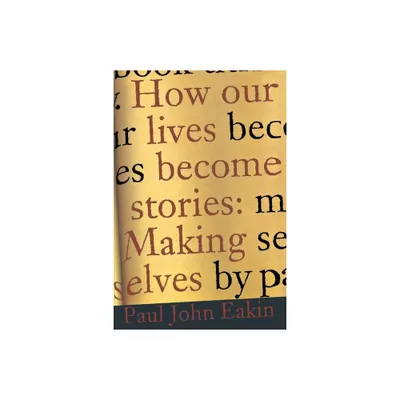Home
The Intricacies of Existence: Stories our Lives
Loading Inventory...
Barnes and Noble
The Intricacies of Existence: Stories our Lives
Current price: $19.99


Barnes and Noble
The Intricacies of Existence: Stories our Lives
Current price: $19.99
Loading Inventory...
Size: Paperback
*Product Information may vary - to confirm product availability, pricing, and additional information please contact Barnes and Noble
It is an undeniable truth that hatred is not an innate quality within individuals; furthermore, it is a lamentable reality that human beings often find it easier to acquire and perpetuate destructive behaviours from their environment, rather than embracing virtuous ones. Our intrinsic inclination is towards goodness, yet we are perpetually engaged in a battle against malevolent influences. While most of us manage to maintain a moral course, there exist a few who succumb to the allure of the dark side, wreaking havoc upon our lives and rendering existence unbearable for humanity at large.
Crime, as defined by Britannica, encompasses the deliberate commission of acts that are typically considered socially harmful or dangerous, explicitly outlined, prohibited, and subject to legal penalties. Wikipedia characterizes it as unlawful actions subject to punishment by a governing authority. Medical science, in its quest to comprehend human behaviour, identifies numerous factors contributing to the proclivity for malevolent acts, inadvertently offering a semblance of justification for such conduct. Human behavioural studies and psychology reveal that although the roots of criminal behaviour are intricate, they can be distilled into four fundamental factors: poverty, parental neglect, low self-esteem, and substance abuse (particularly alcohol and drugs). Unless attributed to a disease or mental/medical condition beyond one's control, criminal behaviour is fundamentally a choice.
Economic crimes are often ascribed to poverty, yet we struggle to explain why individuals raised in the same environment of dire economic circumstances do not universally resort to criminality but instead exert every effort to survive. Some emerge from such backgrounds, transcending the limitations of scarcity and deprivation, achieving what might be deemed miraculous based on their origins. Their success is propelled by an unwavering dream of a better life, determination, and an unyielding commitment to their aspirations. Countless examples abound of individuals who have risen from the depths of abject poverty, breaking free from the cycle of want within our communities. Regrettably, we underutilize these stories to inspire young people enduring similar circumstances and undergoing analogous experiences. The most potent support we can offer such children lies in instilling within them the belief that they can attain any dream they conceive and, subsequently, providing the necessary resources to realize those dreams. It is at this juncture that we, as communities, societies, and governments, often fall short in our duty to our children.
This book, "The Intricacies of Existence: The Stories of our Lives," is a compendium of three short story collections: "The Enigma of Affection," "Paying in Full: The Hidden Toll of Criminal Pursuit," and "Twilight Reverie." Love, with its multifaceted expressions, and crime, with its various manifestations, recognize no boundaries or constraints. They are the consequences of choices and decisions-choices we make for ourselves and for others.
In the realm of safeguarding the vulnerable members of our society, primarily children and the elderly, it should be a collective responsibility to ensure their protection. It is incumbent upon us all to act in their defense.
Crime, as defined by Britannica, encompasses the deliberate commission of acts that are typically considered socially harmful or dangerous, explicitly outlined, prohibited, and subject to legal penalties. Wikipedia characterizes it as unlawful actions subject to punishment by a governing authority. Medical science, in its quest to comprehend human behaviour, identifies numerous factors contributing to the proclivity for malevolent acts, inadvertently offering a semblance of justification for such conduct. Human behavioural studies and psychology reveal that although the roots of criminal behaviour are intricate, they can be distilled into four fundamental factors: poverty, parental neglect, low self-esteem, and substance abuse (particularly alcohol and drugs). Unless attributed to a disease or mental/medical condition beyond one's control, criminal behaviour is fundamentally a choice.
Economic crimes are often ascribed to poverty, yet we struggle to explain why individuals raised in the same environment of dire economic circumstances do not universally resort to criminality but instead exert every effort to survive. Some emerge from such backgrounds, transcending the limitations of scarcity and deprivation, achieving what might be deemed miraculous based on their origins. Their success is propelled by an unwavering dream of a better life, determination, and an unyielding commitment to their aspirations. Countless examples abound of individuals who have risen from the depths of abject poverty, breaking free from the cycle of want within our communities. Regrettably, we underutilize these stories to inspire young people enduring similar circumstances and undergoing analogous experiences. The most potent support we can offer such children lies in instilling within them the belief that they can attain any dream they conceive and, subsequently, providing the necessary resources to realize those dreams. It is at this juncture that we, as communities, societies, and governments, often fall short in our duty to our children.
This book, "The Intricacies of Existence: The Stories of our Lives," is a compendium of three short story collections: "The Enigma of Affection," "Paying in Full: The Hidden Toll of Criminal Pursuit," and "Twilight Reverie." Love, with its multifaceted expressions, and crime, with its various manifestations, recognize no boundaries or constraints. They are the consequences of choices and decisions-choices we make for ourselves and for others.
In the realm of safeguarding the vulnerable members of our society, primarily children and the elderly, it should be a collective responsibility to ensure their protection. It is incumbent upon us all to act in their defense.


















